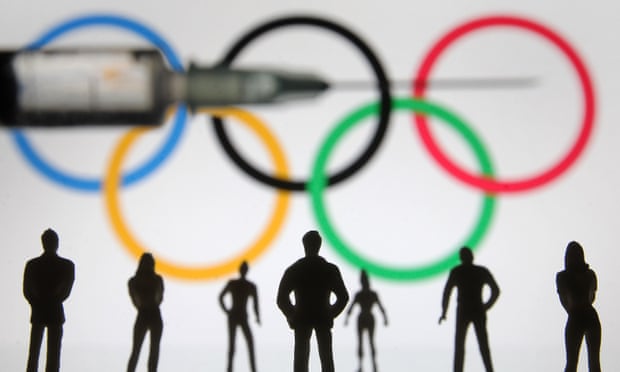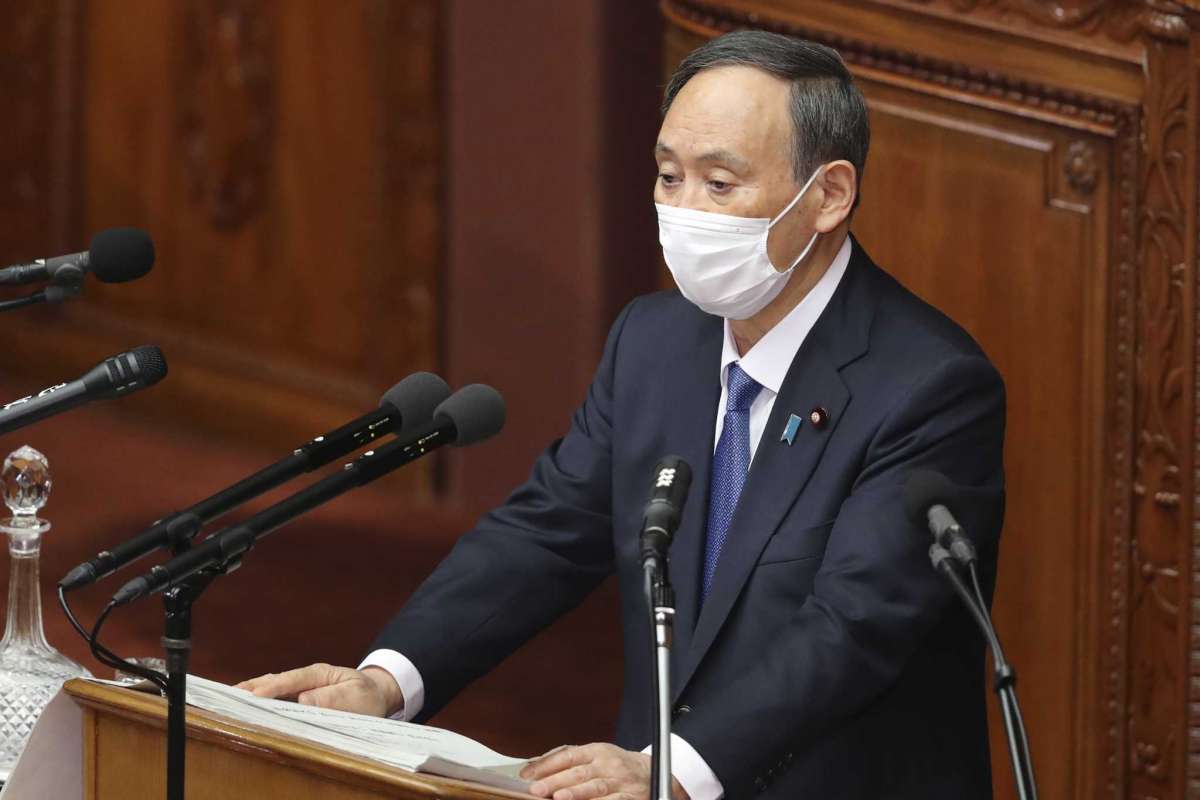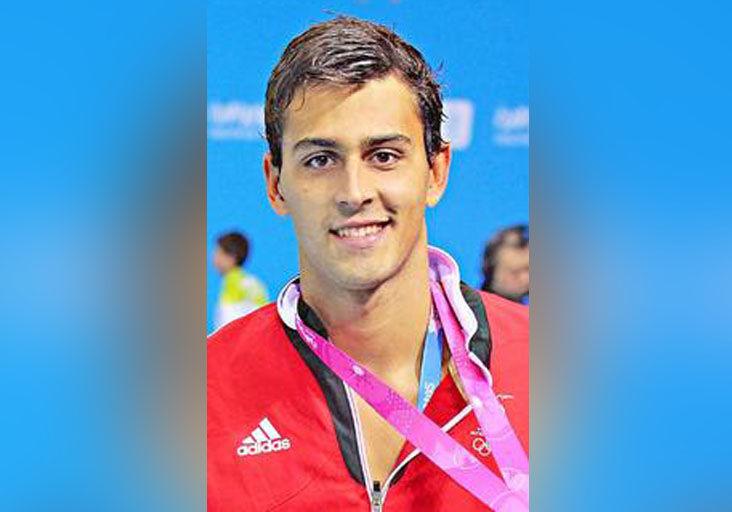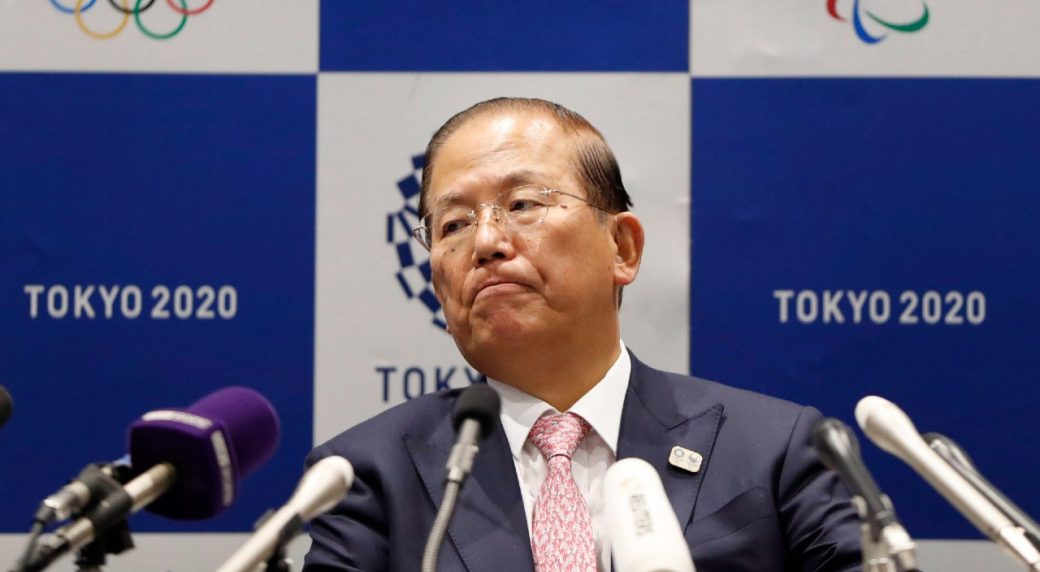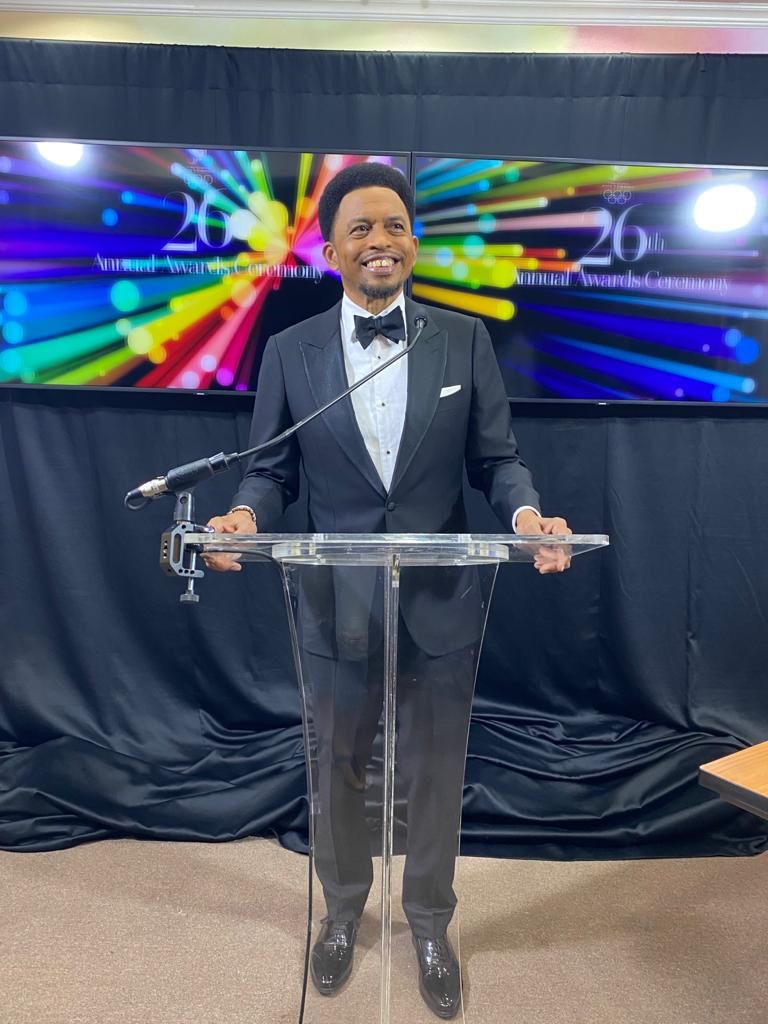With the Covid-19 pandemic still raging, Olympians wonder whether they will – and should – be vaccinated in time for the Games
Japan's PM vows Olympics will be proof of victory over virus
TOKYO (AP) — Japanese Prime Minister Yoshihide Suga vowed Monday to get the pandemic under control and hold the already postponed Olympics this summer with ample coronavirus protection.
Carter sets off
Top local swimmer embarks on long road to Tokyo
TOP Trinidad and Tobago swimmer Dylan Carter departs home shores today en route through Miami to a training camp in Tenerife, Spain, followed by a three-day stop in Nice, France, for competition, before making tentative plans to return to his San Diego, California base, in mid-February.
Because of state-wide...
Official costs of Tokyo Olympics up by 22 per cent to $15.4B
TOKYO — The official cost of the postponed Tokyo Olympics has increased by 22%, the local organizing committee said in unveiling its new budget on Tuesday.
In an online news conference, organizers said the Olympics will cost $15.4 billion to stage. This is up from $12.6 billion in last year's budget.
The Olympics are to open on July 23. The Paralympics follow on Aug. 24.
Audits by the Japanese government over the last several years, however, show the costs are higher than officially stated and are at least $25 billion.
Tokyo said the Olympics would cost about $7.5 billion when the IOC awarded the games in 2013. A University of Oxford study this year said Tokyo is the most expensive Summer Olympics on record.
"The Tokyo Olympics are operating in a very tough environment,'' Toshiro Muto, the CEO of the organizing committee, said when asked about the record costs. Muto suggested the games should be looked at as an investment rather than a cost.
Japanese government entities are responsible for all of the costs except for $6.7 billion in a privately funded operating budget.
"The IOC and TOCOG (Tokyo organizing committee) want the public budget to appear as small as possible not only to guard against public criticism, but also to not discourage future candidate cities,'' Franz Waldenberger, director of the German Institute for Japanese Studies in Tokyo, wrote in a recent paper examining Olympic costs.
Waldenberger noted the Tokyo city government and branches of the central government use the Olympics as "a window of opportunity to obtain additional'' funding.
Organizers in October announced cost reductions of $280 million, cutting out frills including hospitality offerings. However, no cuts have been made to the sports program with a full complement of 11,000 athletes and tens of thousands of officials, judges, and sponsors expected to attend.
Muto acknowledged the cost had increased for the opening and closing ceremonies of the Olympics and Paralympics. Organizers were expected to report a figure later in the week. Japan's Kyodo news agency, citing sources close to the committee, reported the increase is about $33 million.
Decisions about fans and preventive measures for the pandemic are expected to be rolled out in the spring. Reduced fan numbers will affect ticket sales, a major source of income.
Japan has controlled COVID-19 better than most countries with 3,000 deaths attributed to the virus. That milestone was reached on Tuesday. New cases have been rising for a month, adding to public skepticism about the Olympics.
In a telephone poll of 1,200 people published this month by Japanese broadcaster NHK, 63% said the Olympics should be postponed again or cancelled, and 27% said the games should be held. The poll was conducted on Dec. 11-13.
The IOC and local organizers have said the Olympics will be cancelled if they cannot be held this time.
Local organizers are trying to recover some of the rising costs by coaxing more revenue from domestic sponsors. About 70 sponsors have already contributed a record $3.3 billion, driven by Dentsu Inc. the marketing agent for the Tokyo Olympics.
The Nikkei newspaper reported last week, citing unnamed sources "familiar with the matter,'' that 15 top-tier domestic sponsors will add an estimated $150 million to their contributions. It said Japan Airlines, ANA airline, and the Tobu Skytower were considering contributions.
Nikkei is also a Tokyo Olympic sponsor along with Japan's other leading newspapers Yomiuri, Mainichi, and Asahi. Several regional papers are also sponsors.
"We would like to increase revenue more than expected although it is challenging,'' Gakuji Ito, the organizing committee chief financial officer, said.
Ito said insurance coverage might pay out up to $500 million to help cover increased costs.
All expenses the organizing committee cannot cover will fall to the Tokyo Metropolitan Government, Ito said.
The budget shows the International Olympic Committee is contributing $1.3 billion to cover costs of the games. Its contribution to Tokyo will not increase, Ito said.
Ito was asked if he would seek more money from the IOC.
"No, we are not thinking about it,'' he replied.
The IOC's finances are stressed. It generates 91% of its income from selling broadcast rights and sponsorships. The postponement of the Tokyo Olympics has stalled its revenue flow, increasing the importance of staging the Olympics in Tokyo.
The Beijing Winter Olympics open six months after Tokyo closes, in February 2022.
The IOC is also under pressure to support national Olympic committees and international sports federations, many of which rely heavily on IOC contributions.
T&TOC forced to look for new home
Moving the office of the T&T Olympic Committee (TTOC) from the premises of 121 Abercromby Street in Port-of-Spain is inevitable but president Brian Lewis and his staff are taking it in stride.
The owners are in the process of selling the property.
However, the current situation of having to relocate according to Lewis, has not hampered the preparation for the upcoming Tokyo Olympic Games in Japan.
The premier sporting event was originally set to take place last year but was postponed due to the ongoing coronavirus (COVID-19) pandemic and is now scheduled to unfold from July 23 to August 8.
"We are hoping that, regardless what happens we hope to be here until after the Olympics. We also have plans for the celebration to commemorate the 75th anniversary of the TTOC", Lewis told Guardian Media Sports on Friday.
He said, "I want to make it clear, we are not being forced out. We have a good landlord and over the past 10 years that we have been here, we've made an effort to be a good tenant. We hope we are given appropriate consideration.
"We are not worried."
Lewis added that the working committee at the TTOC has not allowed the current COVID-19 pandemic to throw the organisation off, saying: "Supporting the athletes remain our main focus. Zone out the distractions and not let the uncontrollable distract you. It's about pivoting and not being discouraged and become disenchanted.
Lewis explained that, "Since 2013 when I came in as president, our priority was that the TTOC ought to have its own home. However, the resources at the TTOC, is not infinite. The focus has always been on the athletes, this is why most of our fundraising has been athlete-centred like the Athlete Welfare and Preparation Fund (which was established in 2015) and bonuses."
"Nothing happens before its time," said Lewis, whose committee's support for the national athletes has remained rigid during the pandemic.
He pointed that, "We got good news with the introduction of vaccines. Now with the new variant of the COVID, there is uncertainty but we are staying focused."
Lewis, who is also president of the Caribbean Association of National Olympic Committees (CANOC) said now it's about tapping into its fundraising ability and "not being afraid or fearful of the move toward the committee owning its own home".

